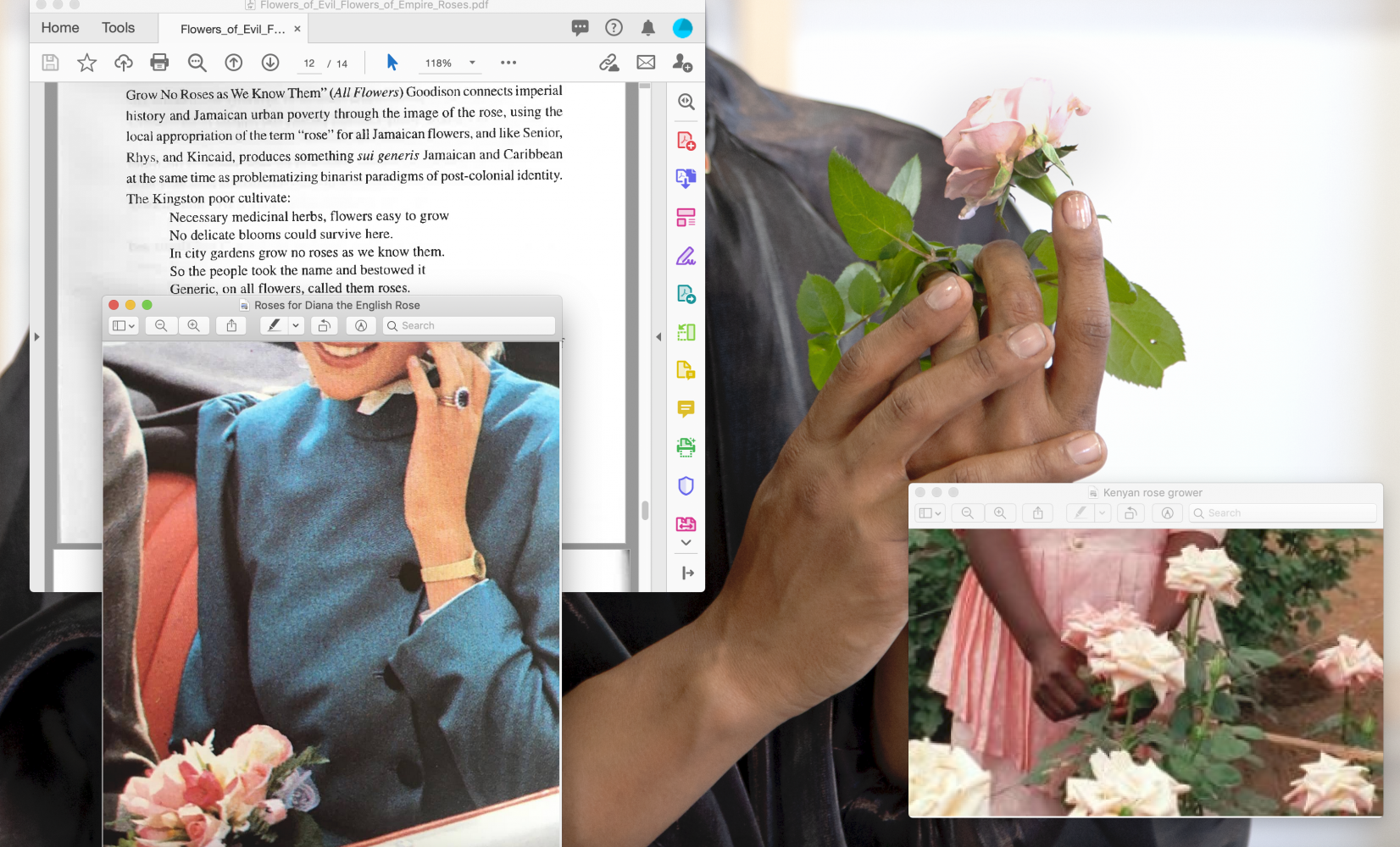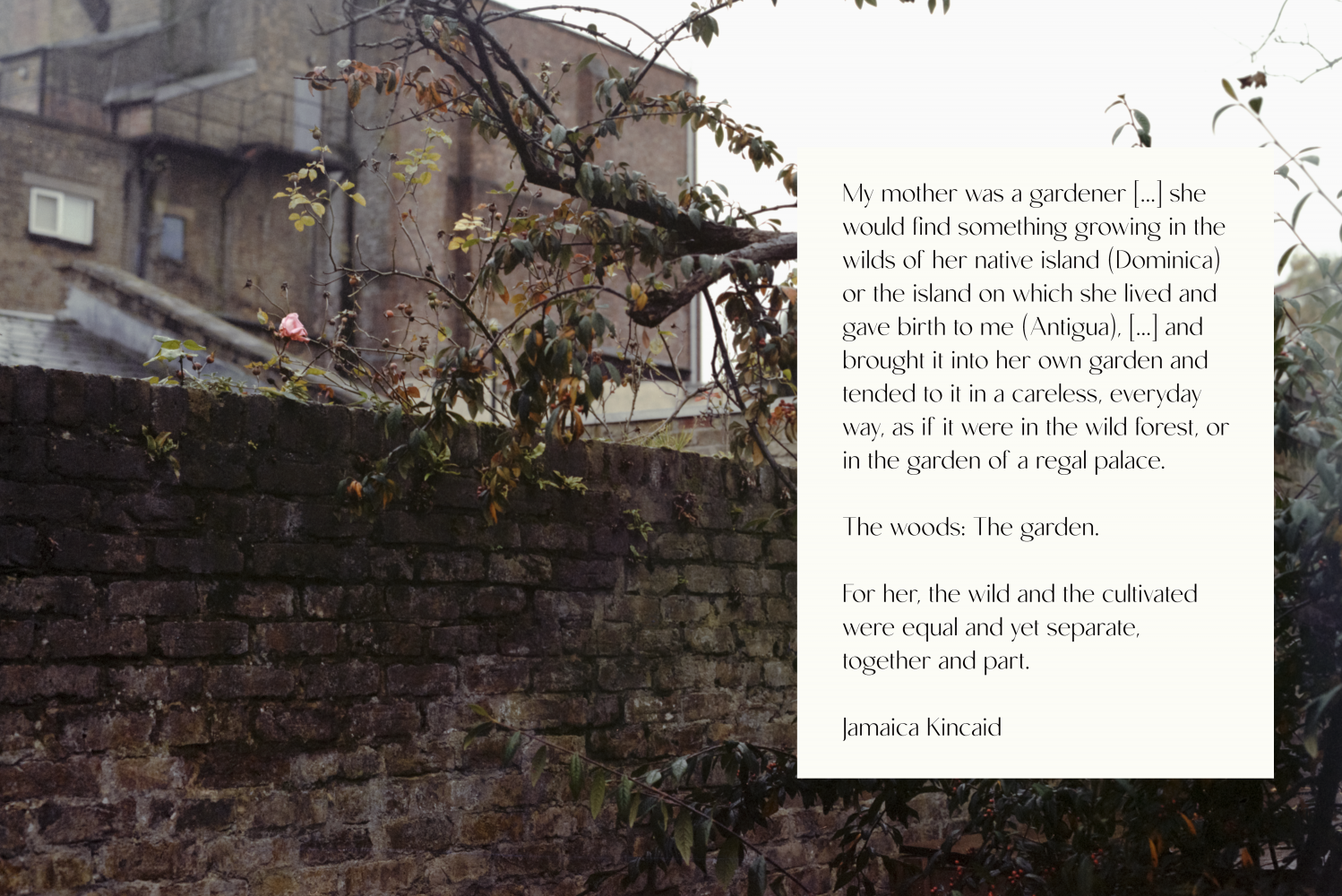Artists
Eve Tagny
Eve Tagny (born in Montreal, Canada; lives in Tiohtià:ke / Mooniyang / Montreal, Canada) is interested in nature, especially the cycles, rhythms, forms, and materials through which it is modulated. Combining performance, video, and installation, her practice unfolds around the figure of the garden—a space that she sees as both natural and theatrical, based in power dynamics and colonial histories. Steeped in meticulous research, her works explore colonialism, corporeal sovereignty, labour, and desire, in order to debunk the hegemony of Western narratives about the idea of nature. Gesture occupies a central role in her practice, activating rituals of commemoration, interpretation, or transmission that challenge the histories and skills in which our conceptions of nature are rooted.
- Born
- Tiohtià:ke / Mooniyang / Montreal, Canada
- Countries / Nations
- Canada
- Lives
- Tiohtià:ke / Mooniyang / Montreal, Canada
- Website
- evetagny.com

Works

Eve Tagny , 02_Tableau de recherche, 2021, screenshot. Courtesy of the artist

Eve Tagny, Kincaid_Reflections on English Roses, 2021, digital collage. Courtesy of the artist
Of the Land
In the multimedia installation English Rose, Tagny probes the culture of the rose, a coveted flower that is central to a vast global industry. As the emblem of England—the Tudor rose, since the reign of Henry VII (1485–1509)—the rose embodies the idea of power, but also that of hybridity. English Rose draws our gaze to this polysemous flower in an architectural installation, taking up the features of the botanical garden, in which videos, photographs, and organic forms converge and dialogue. One of the videos considers how bodies are used for the benefit of horticultural projects—bodies and gestures that Tagny tries to reposition, via performance and archive, at the core of a relationship with nature. Through these movements, she challenges the sometimes-difficult conditions of agricultural work, in which the body becomes a machine—and essential condition for intensive rosiculture, which employs millions of people around the world. Cultivated for the most part in Ecuador and Kenya, the roses that are found on the European and North American markets become symbols of migration, as the journey travelled by the flowers echoes those of displaced bodies. Retracing the domestication of nature as so many layers of sediment in a garden, English Rose dwells on the ways in which colonial structures manifest today. The work brings to the surface buried stories and knowledge, drawing attention to the harmful ecological effects of the flower industry as well as to the spirituality and commitment wrapped up in the care showered upon a flower.